
The Coral: “We wanted the rhythm to be more resistant, more driving and monotonous.” Pic: Ben Morgan Vessell
Ahead of the release of the indie band’s latest LP, their frontman and chief songwriter talks about their new sound
As The Coral’s frontman and chief songwriter, James Skelly has had a large hand in creating some of the UK’s best music of the last 20 years, including the Top 40 singles Dreaming Of You, In The Morning, Pass It On, and Don’t Think You’re The First. After a lengthy hiatus his band (well factually speaking it is his brother Ian’s band) finally returns next month to remind us all just what we’ve been missing.
From the ramshackle indie shanties of their 2002 debut through to the more melodic Butterfly House, The Coral’s sound has developed with every release and this trend continues with the blues and Krautrock-influenced new album, Distance Inbetween. We spoke with James ahead of the album’s release to talk about its creation, his songwriting career to date and getting ready to prove himself once again…
When did you decide to record a new The Coral album?
“It was probably about two and a half to three years ago, around the time that we were putting The Curse Of Love together from all the tapes.”
You were also working on your solo album, Love Undercover, around that time. Did it help bring The Coral back together or was it a distraction?
“It was neither really. We couldn’t just sit around and do nothing so everyone was doing their own thing. I suppose it’s different for me because if I write in my usual style it’s just The Coral, so I had to write in different styles like soul and blues. I did it as an homage to the music I grew up with.”
Did that also influence Distance Inbetween, there is definitely a bluesy feel to it?
“Yeah, in a way. I’d had to learn more lead guitar so once I’d learned that I was able to put it into something more original with The Coral, whereas it was in the classic blues-soul format on Love Undercover.”
IF YOU CAN’T REMEMBER IT, THEN IT WASN’T THAT GOOD IN THE FIRST PLACE
There’s a bolder rhythm on the new album, was that also a deliberate choice?
“There were only four of us, and I was the only guitarist, so we thought rather than try to fill things up we’d play to the strength of the rhythm section and just leave space for it. We wanted the rhythm to be more resistant, more driving and monotonous. We were listening to Hawkwind and then Paul Molloy joined on guitar and he’s really into The Stooges and Black Sabbath and brought a bit of that.”
Did that change your approach to writing?
“Not really, every song is different. Sometimes I’d come with a riff and then put a tune over it but on others I might just be strumming on a guitar. The approach to every song was completely different, so I could tell you how each one was written but as a whole thing each one varies.”
Does the order you come up with lyrics and melody also differ?
“Kind of. A lot of them come from me and Nick [Power] together, but for say 80 percent of them I’ll just get a feeling that wells up and then you’ve the initial bit of a song. I’ll have the first verse and will usually get the opening line. It’s just an emotional thing and then if we don’t finish it straight away I’ll either go and finish it with Nick or I’ll finish it myself, because you only really get that moment for five or ten minutes.”

The Coral: “We’ve always purposefully tried not to sound of a specific time.” Pic: Ben Morgan Vessell
“I haven’t written anything down for years. Sometimes Nick will but I haven’t written anything since the second album. I just keep it in my head. I always think that: if you can’t remember it, then it wasn’t that good in the first place.”
Has the way you write changed a lot since those early days?
“No, because I remember I wrote Pass It On without a guitar just on the train. I was only 17 and I wrote the melody and the tune in my head. It’s quite weird playing it now – it’s like I’m singing a different person’s song.”
Is that how you see all of your old material?
“It seems strange but I still like playing them. I’m looking forward to playing the new album live too, I think it will sound great. Sometimes we’ll extend our songs when we play them live but I think the new ones won’t be that different than they are on the album, whereas some of the old songs aren’t the same as they are on the albums. We always try and get a balance between the old ones, the fan favourites and the hits, and the new ones.”
[cc_blockquote_right] I THINK IF YOU DON’T EVOLVE YOU’RE PROBABLY NOT THAT GOOD [/cc_blockquote_right]
Why do you think those fan favourites have endured?
“We’ve always purposefully tried not to sound of a specific time. We always wanted to sound timeless. I think it’s good for some bands, you’ll probably look back on The Black Keys Brothers album and be like ‘that is the sound of that time,’ but it’s still a classic album. So I don’t think it’s better or worse, it’s just something that we’ve always done.”
Your sound has also evolved with each album.
“I think if you don’t evolve you’re probably not that good.”
But is that a deliberate choice or something that has just happened?
“Well every album is kind of a mini concept album.”
Is there a concept to this one?
“Yeah the songs have a theme where they’re meant to be the unknown. In a way, Distance Inbetween is meant to be a comic where there’s a world between worlds.”
Was that inspired by anything in particular?
“Alan Moore’s comics and Michael Moorcock’s books. Different stuff where you’re freed up to write about the world in a different way. It’s strange because sometimes you can tell the truth more using imagery, you can comment on things in a different way. I learnt more from the comics Watchmen and Swamp Thing than I did from watching shows like Question Time, those things don’t even scratch the surface.”
Do all the band have to agree on the theme?
“It will mostly be me and Nick on that level and then Ian will listen to it and do the art work.”
Do you ever disagree?
“We have to be on the same page or it won’t work.”
What led to the hiatus after Butterfly House?
“We were just burnt out and needed a break. Do a tour, release an album, do a tour, release an album, over and over. We were exhausted and had gotten to the point where we were burnt out and had fallen out of love with it a bit.”
Does that mean you’ll approach things differently this time?
“No, we’ve just had five years off and so we have got a bit more in the tank.”

The Coral: “We’re going to have to prove ourselves again.” Pic: Dom Foster
“He just sent me a song and said, ‘I’m having trouble finishing this tune but I think it could be a good one,’ and then I just finished it, sent it back to him and asked if I could use it.”
Was it a difficult experience writing with someone outside of the band, particularly Paul Weller?
“No it was easy.”
Is there anyone else you’re desperate to co-write with?
“I don’t really know, I always think, why would anyone who is any good need me to write with?”
Who were your main influences when you were getting started?
“The Beatles, Arthur Lee, Brian Wilson, Motown, Pete Townshend, Phil Spector. I also liked Goffin and King and all the Brill Building stuff, I always liked that.”
Do you still refer back to them?
“I mostly just stick with my own thing now.”
IF THE SINGER DOESN’T DELIVER THEN YOU HAVEN’T GOT ANYTHING
If someone asked what you did for a living would you say you were a songwriter?
“I’d probably just say that I’m in a band.”
But you’ve written songs that are loved by thousands of people?
“You leave that up to other people to say. We’re really not that big are we? I think people who like us and respect us are just into good music and I think if you’re into songwriting you’d recognise that we’ve done some good stuff.”
Are your expectations for the new album different to those you would have had for the early records?
“On the first record we wanted to be the biggest band in the world, now that’s probably one of the worst nightmares I could ever imagine. I would like to sell a load of records and be able to tour and be sustainable as a band. That would be brilliant and to be able to build upon it. Hopefully it can gather pace. We’re going to have to prove ourselves again.
“I think we’ve got to be really good at all the gigs, all the singles have got to deliver and everyone’s got to like the album and then we will do some bigger gigs next year. It’s not a case of us just coming back, we’ve got to work at it again which I’m okay with. We’ll be really good live and anyone who is sitting on the fence will be convinced.”
Last question, in your opinion what makes a great song?
“There’s many reasons but I think it has got to be believable and that mainly comes from the singer. If the singer doesn’t deliver then you haven’t got anything, even if you’ve got the best backing track in the world!”
Interview: Duncan Haskell
Distance Inbetween is released on 4 March with the band also heading out on the road the same month. Go to http://thecoral.co.uk/ for more on James and the band. In the meantime, watch the video of Chasing The Tail Of A Dream from the album, below…



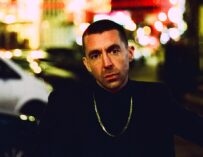


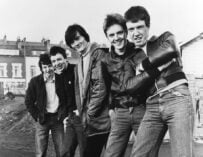


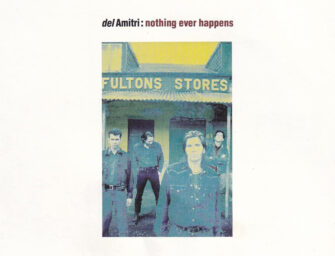

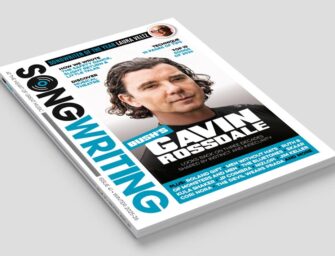
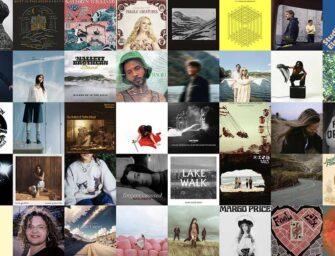





















Related Articles